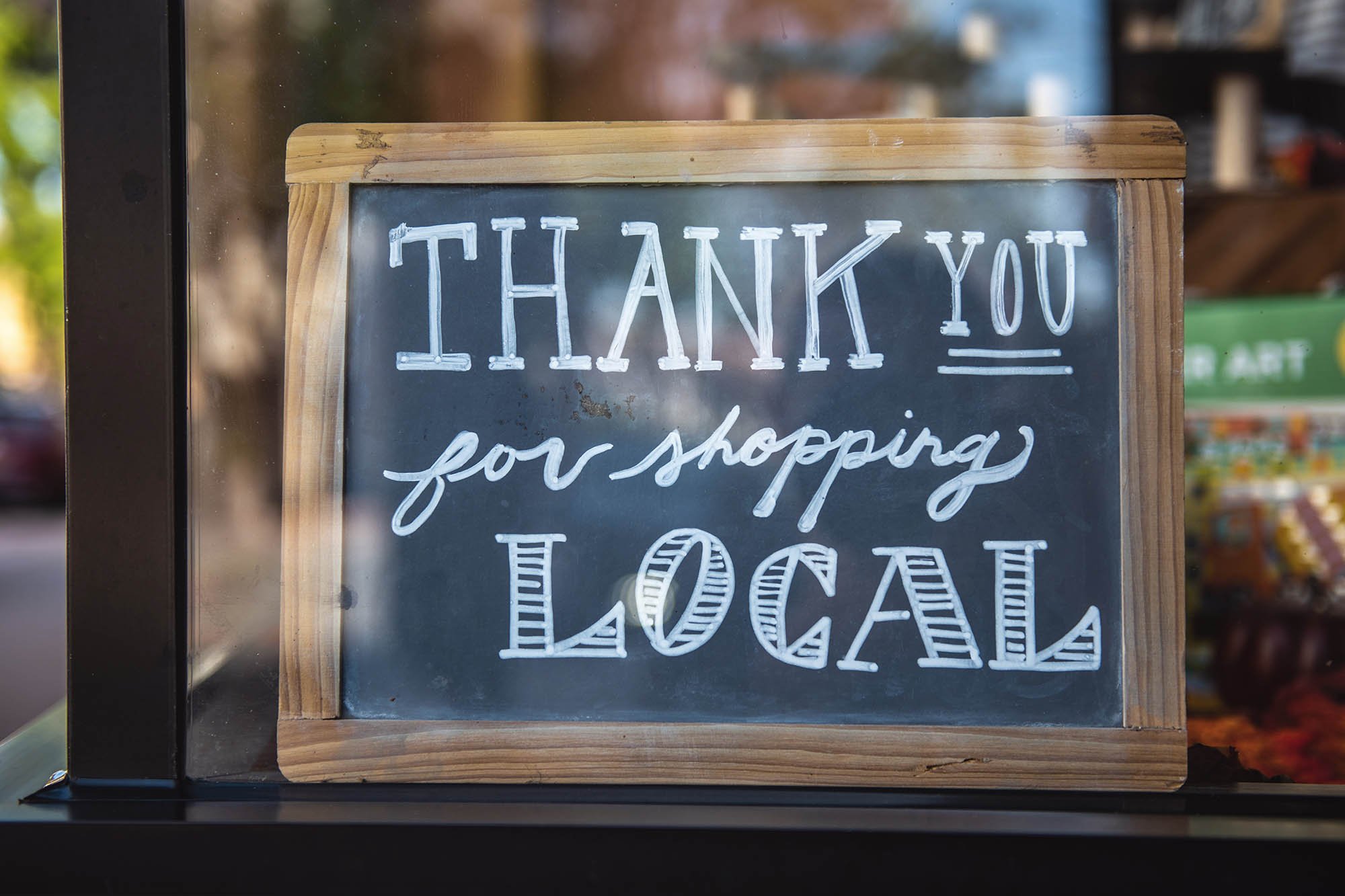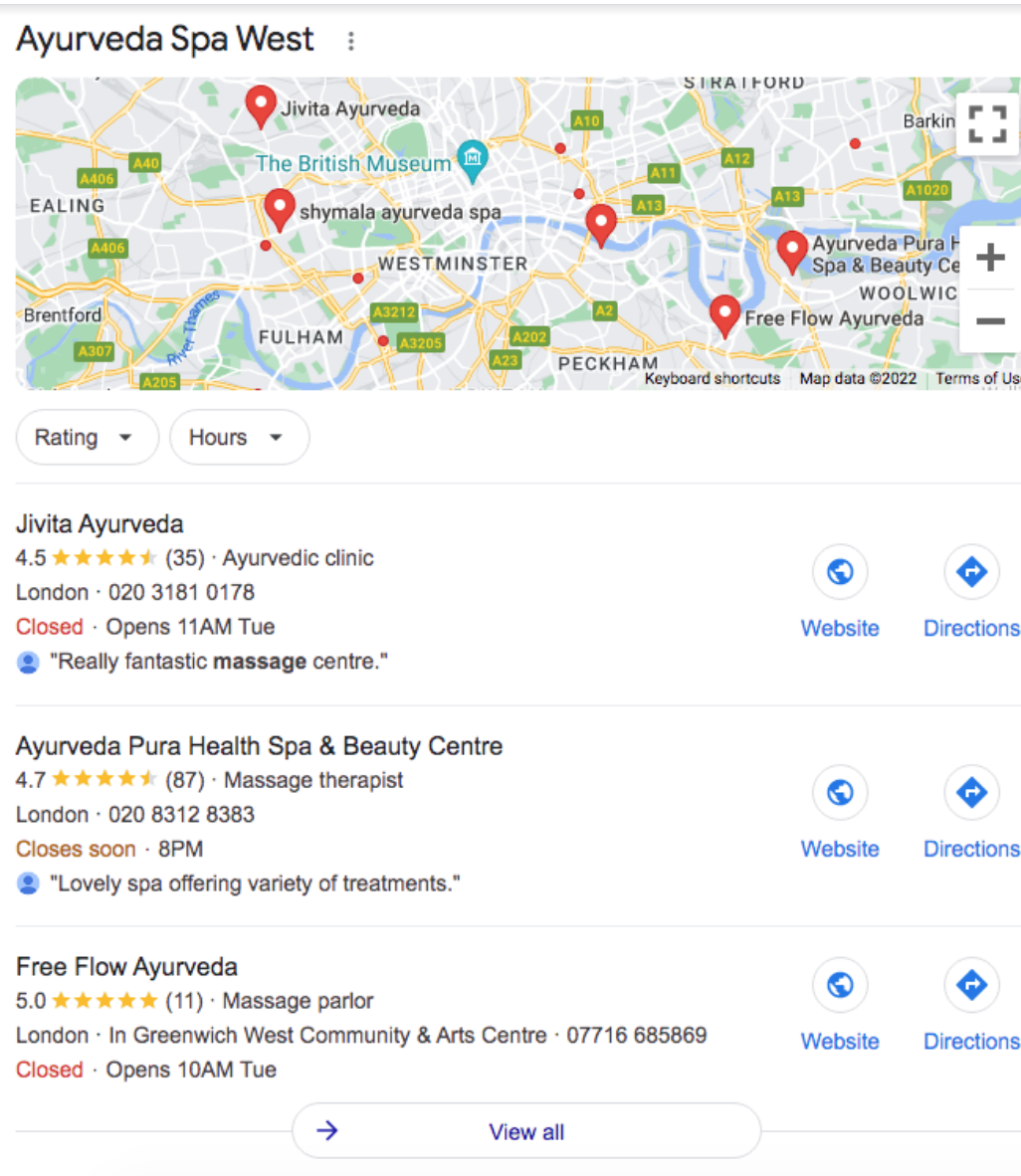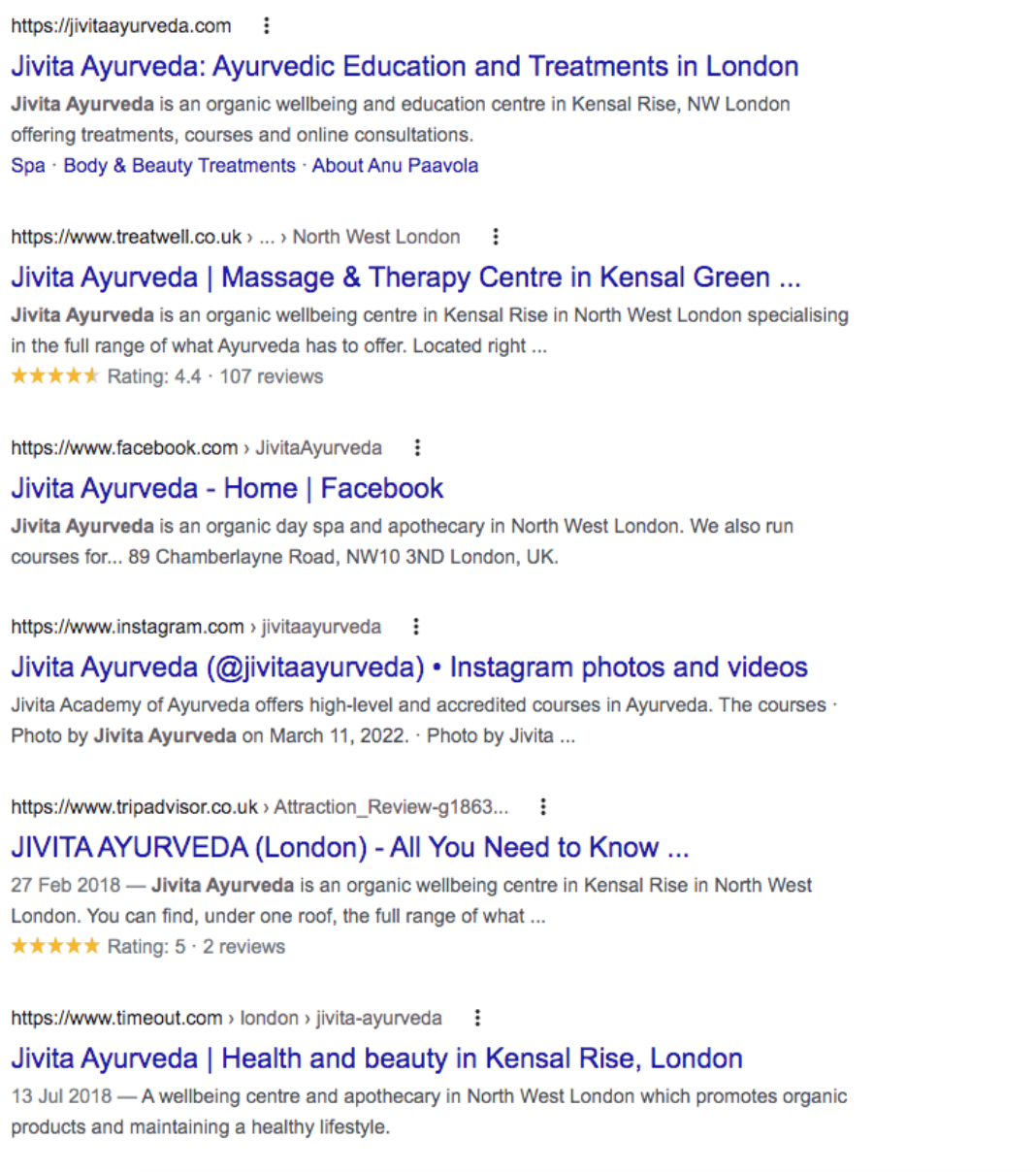A beginner’s guide to local SEO
What is local SEO?
Local SEO (or local search engine optimisation) is essential to any local business whose customers live, work or play nearby. Part art, part science, its objective is to get your business noticed whenever a local customer is actively searching Google for your products or services where you provide them.
Typical local SEO search terms would include "hair salon winchester", "italian restaurant clapham junction" or "electrician near me" but it’s worth noting that searches no longer need to include a location. Google can now assume local intent purely based on your physical location, based on your mobile phone or IP location.
Ultimately for any business that serves customers within a specific location, Google assumes that your related search needs a local result, and therefore its local algorithm displays results in that location. After all, you’re less likely to be searching for a plumber in Edinburgh if you spend most of your time in Wimbledon.
So if your business could do with more visits or enquiries from local customers actively looking for your products and services, local SEO is well worth exploring.
How can I use local SEO to increase my local visibility?
Good local SEO is the act (part art, part science) of making it easier for Google to understand why your business should appear above your competitors when a potential customer searches for what you offer where you offer it.
There is no one single answer to local SEO optimisation and various tactics can be used by different business types and different locations.
A midwife service in East London would not use the same criteria as a Chinese takeaway in Exeter. In the same way, a Chinese takeaway based in London’s Chinatown, where competition and density is high, would use different tactics to a take away service in rural Devon where there is likely to be only a handful of competing businesses operating within miles.
Local (or map) pack vs. localised organic results
A good starting point for establishing which techniques may work best for you is to understand the difference between the map pack and localise organic results.
What are local (or map) pack results?
Where the Local or ‘Map’ Pack is concerned, the more concentrated the competition in your area, the smaller the map area shown, this is because it goes by number of competitors shown within your local area.
As you can see from the example, local pack results while searching for an Ayurveda spa in London, there are only a handful of competitors so most of London is included.
Clicking through on each of these results takes us deeper into Google Maps’ results where you get to see more details about each business via their Google Business Profile.
The most important local SEO optimisation tactics to increase your local visibility/search rankings within the local/map pack results include local directory citations, links, linking domains, and more. But the most important two areas to focus on are currently largely agreed to be a well-optimised Google Business Profile (accounting for 36%) and having a greater number and rating of online reviews than your competitors (17%).
What are localised search results?
The localised search results are the organic results that you find further down the page, below the Local Pack, as per the below screenshot.
Localised organic factors and local map packs work by optimising the same elements - local directory citations, links, linking domains, etc - but in different proportions. However, where proximity is a major factor in determining Local Pack results, with localised organic search results it’s largely about developing your website’s on-page SEO (34%), and the number of relevant links into your website (31%).
What Local SEO tactics are available?
We can see both Map Pack and Organic search results use different optimising tactics, showing us that there is a broad criteria to cover when optimising your local SEO.
Let’s dig a little deeper into the local SEO techniques that you might utilise within your local SEO campaign.
Local directory citations & NAP
Your business’ NAP (or name, address and phone number) are key elements in local SEO and it's a good idea to have consistent contact info (NAP) on the footer of every page of your website.
A citation is your NAP information on another third party website, kind of like your online ID. They are Important for map packs and it is important to have exact matches of your company information across platforms. Citations help Google know that you are a genuine business at a real address.
There are two main types of citation:
Structured citations for example in directory listings. This is when your information is listed in a structured format.
Unstructured citations for example in blogs and social media. Here your information is mentioned within long form content: your name and address are mentioned, but spread out through the content.
Citations are a foundational element of local SEO, they allow us to ‘play’ local SEO, and although they are not as heavily weighted for ranking nowadays, they are still important to have.
Website content
Where page content is concerned it needs to contain the best solution for your customer in your local area. Localised on-page content can reflect your location and mention your city/ town, but you can also mention landmarks or other local businesses to help localise where you are.
Text should be written in a conversational tone and make it clear why you are the best option, explaining your USP clearly.
Blogs for discovery
Including a regularly updated blog on your website is fantastic for local SEO. Whereas your web pages are sales focused, your blog should be a discovery tool for your client, and something which is exciting and engaging, with relevant and helpful content.
Blogs can also speak about local events, local people or interviews and this will build even more local relevance into your website.
On-page optimisation
Help to optimise the local algorithm by making it easy for Google to understand what you are all about as a business.
Your on-site SEO can largely be broken down into technical and editorial on-page SEO.
Technical on-page SEO
One of the most significant factors when ranking locally is whether your web pages render well, and load quickly enough for mobile devices. After all, if you’re a local business, your customers are likely to be out and about and using their mobiles while looking for your services.
You’ll also need to ensure any broken links are quickly identified and fixed, and that your SSL certificate is up to date, you have a sitemap in place, and that search engines are clear what should and shouldn’t be indexed.
Editorial on-page SEO
Use the same keyword phrase in each element on your pages: Title tag, headings and body copy.
One of the most important elements on the page is the title tag. With the title tag, never use your business name first instead use your keyword phrase: Your keywords and service offering, and if you must use your business name, have it at the end of the title tag. You should have a different keyword phrase relative to each page on your site.
The second priority is H1 (Heading 1). Make sure you only have one H1 on your page. Use the same keyword phrase as the title tag. Then optimise the page URL with your same keyword phrase!
Local inbound links
Local SEO works very differently from traditional SEO regarding inbound links for local businesses. Google values links in a very different way in local SEO. The perceived authority of a website is not important in local SEO. It is a good idea to build up your inbound links with other local businesses, large or small because the more inbound local links you have, even from small local websites, count in local SEO terms.
What is seen as a relevant link for Google, in local SEO, includes looking at the subject matter and also the locality of the website in which the inbound link is featured.
Online reviews
The sweet spot for ratings reviews or scores is between 4.2 to 4.6 out of 5. People are suspicious of only 5* reviews and perfect scores have been known to actually lower clicks and conversions.
Make it easy for customers to review you, this could be done by having a review page on your website with the link to your GBP review page. Our Reputation Management service could help you generate, manage and showcase your reviews.
During your service or product sale, ask your customers how their experience has been, and if they could leave a review for you. Again, make it easy for them, give them a business card with a url or a QR code leading to your review page on Google. If you have an email address for your client you can email them the link afterwards.
Google Business Profile
Many clients will never need to go to your website if you have a well-optimised and maintained Google Business Profile (GBP).
And in fact, so few companies are properly optimising their Google Business Profile - depending on your business type and location - you could potentially make a big impact in your local SEO and really stand out from the crowd with relatively small effort.
As a first step, you must claim your location on Google maps. Once claimed, set a profile, with all the sections completed and inline with your website and other listings. There are a number of factors which are taken into consideration when optimising your GBP.
Regular content updates in the form of posts, updating your question and answer section with relevant information, and answering reviews - even the negative ones. This shows your customers and potential customers that you care about your customer experience and are always continuing to improve it.
In conclusion
As you can see there are plenty of plates to keep spinning to ensure that potential local customers find and choose you over your local competition. The first step in improving tomorrow’s local SEO performance for your local business is to understand how you’re performing today. The good news is we can help you with that, with zero obligation.




